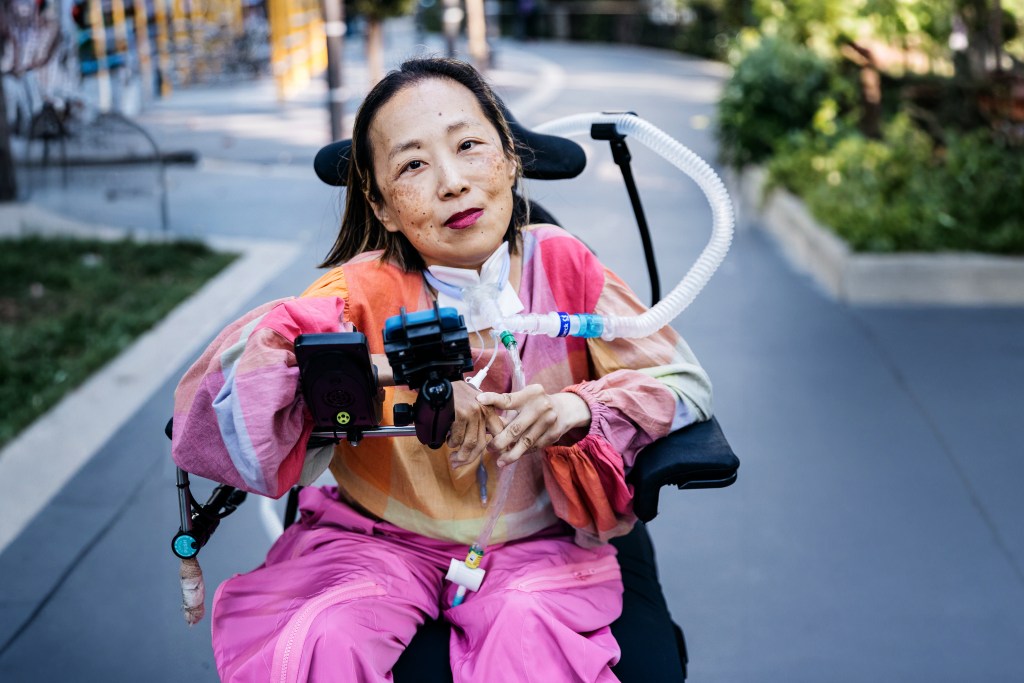San Francisco-based writer, editor and disability justice activist Alice Wong was recognized by the MacArthur Foundation this week with one of its prestigious fellowships for her work on increasing representation of people with disabilities.
Wong, 50, was born with spinal muscular atrophy, where nerves in the brain and spinal cord break down, causing progressive weakness and atrophy in the muscles. As a disability rights advocate, she uses storytelling across various media platforms to share her own experiences and broadcast other people’s stories to reveal how ableist attitudes, policies and practices marginalize people with disabilities.
“The systemic ableism that I and millions of us face every day tells us that we don’t matter, that our lives are too expensive and not worth saving,” Wong said in a video introducing herself as a 2024 MacArthur Fellow. “I want to change the way people think about disability from something one-dimensional and negative to something more complex and nuanced.
“There’s such diversity, joy and abundance in the lived disabled experience. We are multitudes.”
Wong founded the Disability Visibility Project in 2014, which focuses on lifting up the voices of people with disabilities, sharing how their experiences are affected by their overlapping racial, ethnic and gender identities. It started as an oral history project where disabled people interviewed each other, but has now expanded to include a podcast, a blog, social media, arts projects and spaces for connection and community building.
Wong — one of three sisters — was born in 1974 in Indianapolis after her parents left Hong Kong and immigrated to the U.S. earlier that decade. Experiencing life as one of the few Asian American students and typically the only physically disabled student in the class, Wong has said she felt like she stuck out in unpleasant ways, leading to struggles with internalized racism and the urge to blend in with the crowd, according to her biography at the National Women’s History Museum.
This feeling of marginalization, she said, led her to fight for access and visibility for her and people like her and call for systemic change in her 20s. She eventually moved to the Wes tCoast and earned a master’s degree in medical sociology from UCSF, and pushed the school to make accommodations for students with disabilities.
Wong’s work launched online movements that explored how laws negatively affected people with disabilities, like the ban on drinking straws and the lack of masks used in healthcare settings. In 2016, Wong co-founded #CripTheVote, a nonpartisan online movement that brought voters and politicians together to discuss disability issues in the U.S.
As an editor, Wong edited two essay collections that record the experiences of disabled people, specifically those who are people of color, immigrants and queer. She also has a memoir called “Year of the Tiger: An Activist’s Life,” where she discusses the challenges she’s faced living as part of the community with autonomy, rather than being institutionalized.
According to her National Women’s History Museum biography, Wong said, “I want to create a world that is reflective of all of us. This is my life’s work.”
Wong could not be reached Tuesday for comment.
Originally Published:
